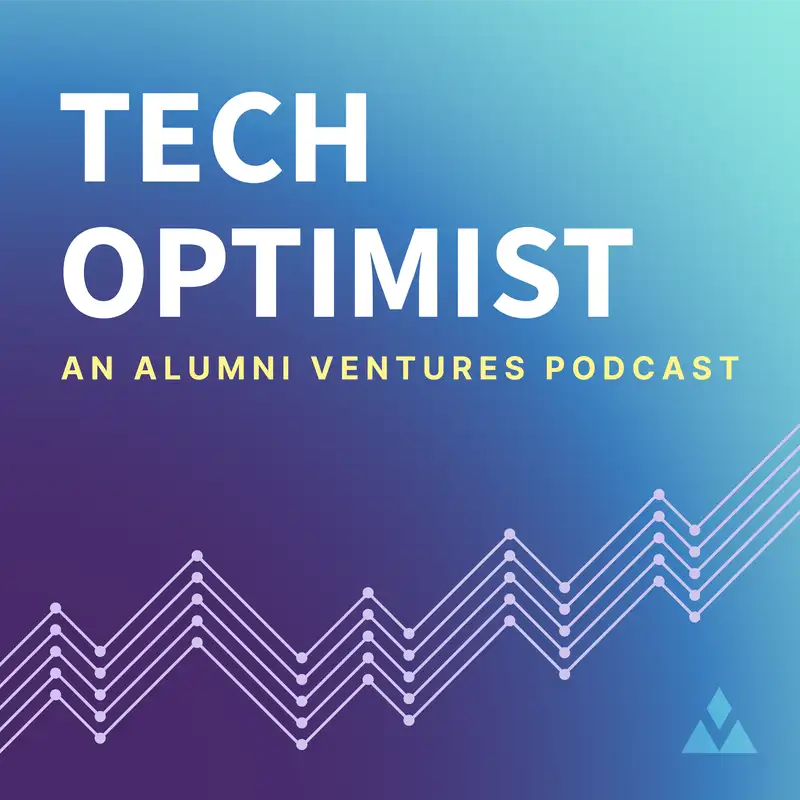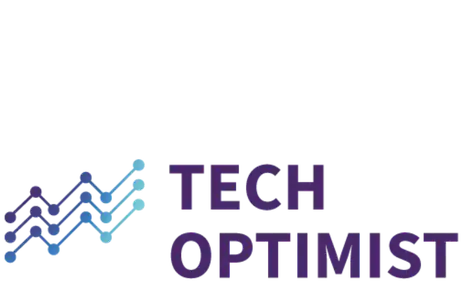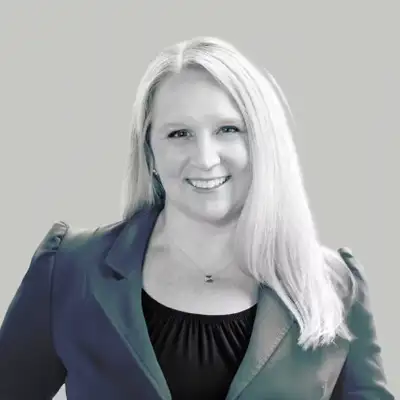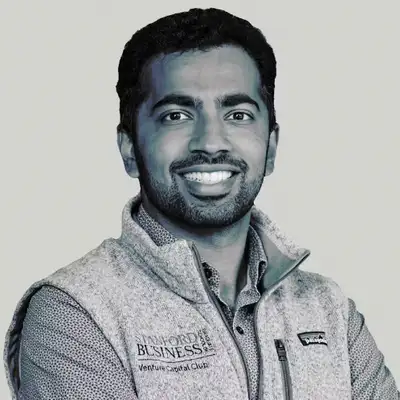#81 - Three Breakthroughs: AI and Careers for College Grads
Samantha Herrick:
Welcome to the Tech Optimist, the podcast where innovation meets impact. I'm your host, Samantha Herrick, and together we'll explore the groundbreaking technologies and visionary ideas shaping our world. Whether you're an entrepreneur, investor, or just curious about the future, this is your space to be inspired and informed. Welcome to episode 81 of the Tech Optimist, a three breakthroughs episode.
Naren Ramaswamy:
You got to either get with that trend or you're going to be washed away and your job is at risk.
Samantha Herrick:
That's Naren Ramaswamy, senior principal here at Alumni Ventures.
Mike Collins:
More people than ever are having their lives change for the better by using these drugs.
Samantha Herrick:
You know him and you love him, that is Mike Collins, founder and CEO at Alumni Ventures. And that's me, my name is Sam and I am the guide, host and just tech note writer for this show. You'll be hearing a lot from me today. Hello optimists, it's your host Sam here, and wow today we have a really awesome conversation to share between Mike and Naren that happened a few weeks ago on today's episode of The Tech Optimist brought to you by Alumni Ventures. Let me give you the rundown of some of their incredible discussions that happened today.
First, they tackled AI in careers, and so Mike and Naren broke down how AI isn't just about automation, it's about evolution. Naren highlighted how tools like generative AI are helping people re-skill, adapt and thrive in a job market that's changing faster than ever. Then came GLP-1 drugs, the game-changing treatments for obesity and diabetes. Naren and Mike took the lead sharing insights into how these drugs are transforming public health. While, Mike explored the ripple effects from reshaping wellness industries to cultural perceptions of health and weight loss.
And to cap it all off, they dove into the evolution of elections from podcasts becoming major platforms for candidates to AI driving campaign strategies. Mike and Naren unpacked how technology is rewriting the rules of democracy. Real quick, we're going to take a quick break to hop into an AV ad and a disclaimer, and then I promise I will hand the mic over to Mike and Naren. So, hang tight.
Dalton:
Do you have a venture capital portfolio of cutting-edge start-ups? Without one, you could be missing out on enormous value creation and a more diversified personal portfolio. Alumni Ventures ranked a top-20 VC firm by CB Insights is the leading VC firm for individual investors. Believe in investing in innovation? Visit av.vc/foundation to get started.
Samantha Herrick:
As a reminder, the Tech Optimist podcast is for the informational purposes only. It's not personalized advice and it's not an offer to buy or sell securities. For additional important details, please see the text description accompanying this episode.
Mike Collins:
Hi, I'm Mike Collins. I'm the founder and CEO of Alumni Ventures. I'm here again with Naren and we're talking about tech breakthroughs. Just every week, something new and exciting, great stuff going on. We get together to share what we see through the lens of venture capital and entrepreneurship and technology with the hope it helps our community, our investors, and the public have a prepared mind as these technologies breakthrough and come forward. They have the potential to impact all of our lives personally and professionally, and I just love to talk about it. So Naren, good to see you.
Naren Ramaswamy:
Good to see you, Mike. Excited to dive into this week's breakthroughs.
Mike Collins:
Yeah, what's on your mind?
Naren Ramaswamy:
Well, it'd be remiss to not touch on AI again to begin with, particularly around careers and how they will change in the AI era. And I bring this up as a topic because we've talked about in the past few episodes, and I want to treat it delicately because this is a revolution that is going to affect jobs. On one hand, I want to be delicate about that because that has happened in the past and we've seen it. At the same time because we have over 10,000 investors and large following. So, it's important to also, it's our responsibility, I think, to educate folks and let them be prepared for what's coming.
And so, I bring this topic up as a service for that and to help people be prepared for what's coming. And Y Combinator released a video about the progress of AI and the insight is that basically AI is like Moore's law and we may see plateauing short-term progress. But plateauing, we're going from like 10X to 5X, maybe 3X per year. That's the plateauing that's happening. And we've seen what's happened with Moore's law over the past 20 years. And as far as I can tell, people have been saying for 20 years, Moore's law is going to die, hasn't happened yet. And expect the same to be the case for AI because there's always going to be this continuous reinvention.
Samantha Herrick:
So, today we are going to spotlight a video from Y Combinator's YouTube channel entitled The AI Future Has Arrived and What You Should Do About It. This video that Naren brought up today that we're spotlighting dives deep into how AI is reshaping industries and the message is clear, the time to act is now. The hosts, Dalton and Michael outline why AI is working and urges us to leverage this knowledge. Looking back, early adopters of major tech revolutions like the first iPhone or Bitcoin, gained incredible advantages.
Now, AI is offering the same kind of opportunity. So, what should you do? Whether you're launching a start-up, looking to upskill, or choosing the right company to work for, the key is to act. Learn the tools, become a user, and prepare for a future where these skills will be indispensable. Don't miss your chance to be part of this movement. AI is a wave to ride, and as the host said, don't just sit on this knowledge, change something. So, without further ado, here are a few snippets from that video from Y Combinator.
Dalton:
If you just look at the rate of change and the rate of new models coming out of new techniques, it doesn't seem like we've hit the scaling wall. And again, if you believe that, which I happen to believe and you just project forwards, this stuff is going to get better and better.
Michael:
Yeah. Hello, this is Dalton plus Michael, and today we're going to talk about AI. It's officially blowing our minds. AI is working. What have you seen?
Dalton:
Yeah. If you are watching this video, you probably also agree that AI is working. You have the knowledge, but are you leveraging this knowledge? If you are living in the future yourself, what should you be doing differently knowing what's coming? How can you prepare for the future?
Michael:
What's interesting is that we've seen stuff like this happen before. We lived through the first static web pages, we lived through the dynamic web apps, we lived through smartphones happening, we lived through Bitcoin happening. Knowing that this is not a fad, but a trend early is maybe one of the most strategic things you can know. So, if you're watching this video, you have a gold mine, literal gold mine of insight on how the world's going to change. First, if you were ever interested in starting a company, I can't really imagine a better time.
Dalton:
Yup.
Michael:
I would argue that most of the best companies were created after this kind of tech sea change, seeing the sea change and then dreaming what we could do with it. So, if you were ever inclined to start a company and people are saying to you, "Oh, this AI thing is overhyped," or like, "Oh, there's too many." It's like no.
Dalton:
Again, you can look to history. You needed there to be enough users and the tech to get good enough for internet start-ups to really take off. If you started an internet start-up in '94, '95, that would've been too early, I think, but it's much better doing it later. Same with all these other platform shifts is there's now enough of an install base. Now, the models are actually good enough, the tools are good enough-
Michael:
The info is good enough.
Dalton:
... it's still is like a good time.
Michael:
Yeah. You can build applications that were unimaginable and we won't go into too many details, but we literally have seen YC companies be transformed in the last six months. Businesses that weren't working like-
Dalton:
Started working.
Michael:
... started working.
Dalton:
And I would think really hard about where you choose to work. You want to work somewhere that is adopting these tools. And is going to benefit from the adoption of the tools and where you could be surrounded by people that are very smart at adopting AI tools that you can learn from versus the folks that are just hoping this all goes away. Or that the AI, good luck with that. There are a lot of people that hope the internet would go away. That was definitely-
Michael:
A lot easier for business if e-commerce didn't exist.
Dalton:
A lot of newspapers, that was the plan. Anyway, you also want to work somewhere where you could be mentored by the folks that are really excellent. If you're just imagining this is going to be very important skills in the future and for how we live our lives, working in a place where the tools are great and the people using the tools are also great and can teach you about them, that is really smart, right? Again, imagine it's 2001 and you could work at a place like Google or another internet native company that was on the cutting edge of building internet software versus some insurance company or something. Even if it's a programming job, there's very difference on how much you could learn and upscale yourself between those types of jobs.
Michael:
And I'd argue that start-ups are adopting these tools faster than big companies. So, there's a really interesting question of are you going to get more experience being a first 10 or first 20 employee at a start-up that's using AI versus working at that big company where using AI is a political decision and a PR decision and a bureaucratic nightmare? Be careful because the learning that's happening in start-ups right now is far outstripping what's happening in most large companies. And then maybe last but not least, don't do nothing. I think that's maybe the meta point of this entire video, change something in response to this.
Dalton:
Yeah. You know something that other people don't know. Capitalize on that knowledge.
Michael:
Don't sit on it. The knowledge isn't going to have any interest, you got to do something with the knowledge. And man, the earlier you do it, the more leverage you're going to have.
Naren Ramaswamy:
This is going to, as a result, impact roles beyond coders. Today, software engineering is one of the beachhead markets that AI is disrupting, but in the span of a couple years, I think we'll see project management, operations, marketing, design, all of these roles integrated with AI tools. And you got to either get with that trend or you're going to be washed away and your job is at risk.
Mike Collins:
It's one of the areas that we get asked a lot about from our investors and our community members. It's one of our more common questions that comes. We talk about personas that we have, and we definitely have a persona of our community that is very much kind of life visionaries. So, they definitely are in VC in this space to invest, but they're also very concerned for themselves and their family and their kids about where the world's heading. And they want to be sure that from an educational standpoint, from a career standpoint, that they're on trend and their kids are going to be well positioned.
So yeah, I appreciate you really bringing up the topic because it is a delicate one. There is pain and suffering and opportunity and great gains, both are true.
Naren Ramaswamy:
All of them combined, yeah.
Mike Collins:
All of that combined. But at a pace perhaps that is quicker and more pronounced than we've seen before. I don't know about that, timing is always really, really tricky and it is likely to be uneven by sector, by background, by opportunity, so it will be uneven. So, an economist can sit back and say, "Oh, these technology innovations and breakthroughs, they're net positive and they're accretive and look at overall numbers and standard of living." But if it's your family and your job and your son or daughter who studied for four years to do something that is now obsolete, you don't really care about what the economist has to say.
Naren Ramaswamy:
And to that point, what can you do, right? You have the storm coming, it's going to disrupt your life and everyone else's. What can you do to get prepared? I think that's what the Y Combinator of video actually really touches on which says, join a company, it does not have to be AI native. Join a company that is using AI tools or adopting them and trying to be ahead of the trend. That's the best thing that you can do, you're going to stay abreast with the trends and you're upskilling yourself. Training yourself to use these tools is how you're going to be marketable, and we are doing that ourselves on a day-to-day basis, candidly.
Mike Collins:
Yeah, 100%. Yeah.
Naren Ramaswamy:
And so, I think that was a good insight for me.
Mike Collins:
No, and just again, to bring it home that we're busy venture capitalists, but we actually spend an hour a week as an executive team talking about nothing but how we are using, we and our teams are using AI because that's how important we think it is to lean into these tools. I would also say, again, when I am over dinner speaking to investors or friends that ask me this question, I also come back to something you and I have talked about, which is this shadow trend, which is the bespoke economy. And the fact that there are certain things that I think are here to stay, at least in the medium term, that are fairly fundamental to being human.
And those are things that are in person, those are things that are bespoke and have a story behind them and craftsmanship behind them. And I think humans crave those things and as our society increasingly becomes driven by AI and robots and new forms of high technology, I think that's going to free us and also pull us to the counter things, the more human things. People work in a high-tech lab all week, and then on the weekends they want to go for a hike kind of thing. Or they'll have high-tech meals made all week delivered to their doorstep, customized to their genome, and then on Saturday morning they want to go apple picking.
So, I think that's also something to keep in mind is some of these skills that one develops that are natively human about empathy and communication and salesmanship and making people laugh and cry and storytelling. I think those things are really, really powerful as well. So, a couple of tips and then just be open-minded and be flexible. That I think is also something that we all have to think about professionally going into this next decade is the humility of not being able to predict the future and where things are headed, but just being curious and leaning in.
I was joking with our CTO today who Andrew and I are probably two of the more senior members of our team, and we joke that sometimes we run into a 25-year-old who in our view is stuck in their ways when it comes to using new technologies or trying new things. It's very interesting how quickly unless one exercises the muscle of curiosity and trying new things and being open-minded that we can burn those things in pretty quick. And it's one thing I would encourage again parents to look for in education for their kids is learning open-mindedness and flexibility and the ability to learn and adapt and grits and some of these characteristics that are professionally agnostic.
Again, just to date myself, when I graduated from college in 1986, there was no internet, there was no iPhone, the magnificent seven companies either didn't exist or were start-ups kind of thing. So, the world in just my professional lifetime has changed 10X. And I think we're likely to see a similar revolution, but probably over 10 years, not 30. So-
Naren Ramaswamy:
Exactly.
Mike Collins:
... you got to lean in kind of thing.
Naren Ramaswamy:
Yeah.
Mike Collins:
For sure.
Samantha Herrick:
Sit tight, don't go anywhere. Only take a second for a break.
Speaker 6:
Exceptional value creation comes from solving hard things. Alumni Ventures Deep Tech Fund is a portfolio of 20 to 30 ventures run by exceptional teams who are tackling huge opportunities in AI, space, energy, transportation, cybersecurity and more. These game-changing ventures have strong lead venture investors and practical approaches to creating shareholder value. If you are interested in investing in the future of deep tech, visit av.vc/deeptech to learn more.
Mike Collins:
So, I want to also, again, one of the other big technologies is I just want to spend just a couple more minutes giving, again just some updates on things going on in peptide research and GLP-1 stuff. We've talked about this before, but I thought it was-
Naren Ramaswamy:
Yup.
Mike Collins:
... again really important looking at the numbers. I want to make two points, which is more people than ever are having their lives change for the better by using these drugs. I think we're starting to see this reflected in some numbers from public companies related to things taking place with people's diet and exercise. And I think it is still very uneven, I think there is clearly, and we're talking here about the Zepbounds and Mounjaro class of peptides that really help with sugar issues and weight loss for sure is the main one. And that we just have a society that probably a third of the country has health issues related to being overweight and we're seeing just very effective results.
But the drug being expensive, not always insured, that this is not getting to people at the pace that we'd all like to see. But again, I think that is a matter of time. I think those of us that watch the drug pipeline continue to see really things getting closer and closer, which like next generation drugs are coming over the next year or two. And again, I think we're seeing more and more data coming out about other health benefits that seem to be, it's preliminary, but seem to be independent of the benefits from the weight loss and the blood sugar control. And so, we're looking at things related to a lot of things that are related to inflammation, which is again, one of the huge categories of pain and suffering are autoimmune diseases.
We're seeing things related to brain function, again, preliminary, we haven't quite teased apart how much of this is related to things that are going on with weight loss because we know being at target weight and having good blood sugar control definitely affects cancer, heart, brain, all these kinds of health. But I just again wanted to let everybody know that this is something we were on early, it's proven to be true. Research is continuing to expand and the pipeline is super exciting here. So, while we're all talking about AI and since the election, there's also been a huge bit of activity and interest coming back into the whole blockchain space for sure.
So, this is a little bit out of the news, but as far as the impact on people's lives, I just can't state enough how I've just seen it first-hand myself within my family, within our company that this has been really positive and really transformative for people. And I'll just mention one other aspect that I've observed, which is more just anecdotal in the people in my universe that have effectively used this for these purposes is there definitely seems to be really powerful flywheel effects, mentally. So, as people lose weight and maybe their knees stop bothering, maybe they're sleeping a little bit better, maybe they're having fun exercising, buying a new wardrobe.
It creates a real positive feedback cycle around wanting to exercise more, eat better, sleep better, maybe cut back on their drinking a little bit. They just generally are more, I think in the same way we can all have experienced or imagine how these negative fly wheels can happen. Where something happens in your life, you set your back, you stop exercising, you feel worse, you don't sleep as well, that those things can spiral. But I think this is potentially a really powerful kickstart therapeutic on the positive side for people that have a variety of issues where they just need help.
And I will also say not only within the GLP-1 class of peptides, which are basically just short amino acid chains, just a little shorter than a full protein. But there's a lot of peptide research, so this is an area of really exciting work being done. And again, coming back full circle to AI and some other new technologies from DeepMind at Google protein folding. These things are the ability to discover test at a much faster pace without the same hassle by being able to model things in software versus a very old, arduous clinical process. Again, I think this is an area that just underscores, we should also be very optimistic about health.
Naren Ramaswamy:
Yeah. And I want to underscore Mike that I think this is going to be bigger than AI.
Mike Collins:
Yeah.
Naren Ramaswamy:
I'll go out and say it because we're already seeing reports that entire states in the US, 6% of the population is on one of these drugs, right? And talk about consumer adoption at a wide scale, that's the kind of adoption we want rapidly growing start-ups to have.
Mike Collins:
Yup.
Naren Ramaswamy:
It's a humongous number and we're going to see a flood of new access. You've touched on the lack of exposure or the shortage, the drug shortage. Medicare has said that they will be negotiating the price for Ozempic in the next couple of years that's going to unleash a flood of access, especially for those that insurances that don't cover it. And there's also a whole slew of compounded drugs that are entering the market plus oral versions of the drug. And that's really going to break free the gates for-
Mike Collins:
Right now, people are aware on the upper west side and in Hollywood, but they're less aware in some urban neighborhoods where there can be a food desert. So-
Naren Ramaswamy:
Exactly.
Mike Collins:
... it's going to take time. These things unfortunately don't go as quickly as we like, but I think it is, what I have seen is technology is a very powerful force. And we have seen drugs before, but I don't know if my lifetime I've seen is drug, if you have a class of drugs that can allow people in a relatively straightforward and relatively safe way. Especially versus cost benefit analysis, allow people to be at a healthy weight and all of the primary, secondary, tertiary benefits that come with being at a target weight, physically, psychologically, all of the above. It is very, very powerful, so I think it's a bold prediction about it, but I think my parents always said, "If you don't have your health, you don't have anything."
And so, if we can give more of the 100 million Americans that struggle with this a solution, I don't think there's frankly anything more important that our government, our society, our non-profits can do is to help people learn about it with a doctor and gain access to this class of miracle drugs. So-
Naren Ramaswamy:
Yeah.
Mike Collins:
Okay. Yeah-
Naren Ramaswamy:
That's a pertinent topic.
Mike Collins:
Let's talk the big elephant in the room, the 2024 election is in the books.
Naren Ramaswamy:
Yeah, I'd love to touch on that. Last week we talked about Kalshi, the betting platform, which predicted the result way better than pollsters did.
Mike Collins:
Yup.
Naren Ramaswamy:
And this week, Scott Galloway published a piece called the Podcast Election.
Mike Collins:
Yup.
Naren Ramaswamy:
Talking about how podcasting is now the platform, both candidates used podcasting as the platform to reach classes of voters that they couldn't have reached otherwise. And also, this is a shift in influence from TV to podcasts. Again, another technological medium that has now become the medium for these candidates to reach audiences. So, you have minimal barriers, you have maximum reach, and it touches on the whole attention economy, which we're seeing with TikTok, Instagram Reels, and it is quite intimate. And you can think about how personalization algorithms at these large tech companies can even further expand the reach for these candidates.
So, it's fascinating. This is, again, another delicate topic, right?
Mike Collins:
For sure.
Naren Ramaswamy:
The election has personal implications for many different people in many different ways. And so, we're not taking a political stance here, we're just highlighting that tech is having impact in not just AI or healthcare. This is literally in the election, which is not something you would necessarily think technology would touch, but it has become front and center for these candidates and candidates of the future. We can think about what elections would look like 10 years from now with the proliferation of AI and algorithms that would help people reach parties, reach folks that they haven't been able to reach before.
And overall, this, I guess it can be good or bad, but it provides, it just expands free speech and reach. So, I think it's inevitable, and it's coming.
Samantha Herrick:
The 2024 election will go down in history for many reasons. But one standout trend was the rise of podcasts as a political battleground. So, now let's talk numbers. Over 135 million people listen to podcasts monthly and more than 100 million Americans tune in weekly, a 31% increase from 2023 alone according to Edison Research. Clearly, this isn't just a niche hobby, it's a cultural movement. Podcast offered a unique advantage, long form, nuanced conversations that connected with politically engaged listeners.
In fact, 81% of podcast listeners reported voting in the 2020 election making this audience a goldmine for candidates. Mike and Naren, again are going to dive into this a little bit more, but former President Trump and his running mate, J.D Vance, leaned heavily into this medium. Together, they appeared on over 20 podcasts since June 2024, and their top 14 podcast features amassed nearly 69 million views on YouTube. Kamala Harris and Tim Walz weren't far behind completing more than 10 podcast interviews in a single month.
Podcasts provide candidates the time to dive deep into substantive issues, something often missing in traditional media soundbites. Second, the intimate and candid format builds trust and reliability. Finally, podcasts allow campaigns to tailor their messaging to specific demographics, leveraging the highly engaged nature of podcast audiences. One clear example is how Trump's campaign appearances as a significant factor in their eventual victory. By prioritizing platforms with millions of followers, they generated word of mouth buzz that resonated far beyond their initial audience.
Meanwhile, Harris's campaign demonstrated that even in a more traditional democratic strategy could thrive in a podcasting space as well. This shift marks a turning point in how Americans are consuming media. As candidates increasingly prioritize podcasts over traditional outlets, we see the beginnings of a media transformation that could shape elections for years to come. Now, a bit of reflection. So, what does this mean for future elections? What is the world and the podcast space going to look like in 2028 when our next election cycle comes around?
As time passes, we can see campaigns placing even more emphasis on these platforms. Does it mean these campaigns produce their own podcasts? Do they take their own spin on how to truly decide and form the message they want to get across? But this also raises questions on how this format will evolve to balance accessibility and authenticity, and what happens when every candidate competes for space in an already crowded medium. Something to stir on and think about.
Mike Collins:
Yeah, no, again, one can always look at history too, and then communicating. Whether that be the political careers that were made, but from those who were able to master the radio, right?
Naren Ramaswamy:
Yeah.
Mike Collins:
Or even going back further to those that were really good stump speech, literally, Lincoln is a stump speech speaker. Part of the reason he became president, he was good in that technology forum, right?
Naren Ramaswamy:
Right.
Mike Collins:
And then you go to the radio and you had a generation of people, good and bad, who were masterful on the radio, Churchill, FDR, those kinds of things were very, very effective. You think about Reagan being the television president, and I think one can make a strong case that Trump was the Twitter guy the first time around. And then technology moved on a bit, and this was the podcast election. And so, I do think this idea of technology, disruptive technology, if you look at some of the big podcasters in 2024, they're basically people that got fired from traditional media. And you take, I don't know, Tucker Carlson's a top-ten person, and it's like he got fired from Fox.
And this is not unusual with disruption, right? It's often a disruptive technology is thought of as the Clayton Christensen, it was the rebar of the steel industry, the part of the market that nobody wants. It's fringe, it's a toy, again, over 30 years they just hear this and see this pattern over and over. The goofy, funny not-to-be-taken serious technology is the one that is disruptively accessible, cheaper. Putting together a podcast requires not much compared to a television show or a radio show. And I think running a political campaign is also a marketing exercise. So again, without getting into presidential politics at all, it's like it is a marketing job.
And part of being a marketer in 2024, as you point out Naren, it's an attention economy. You have to be where people are and people are, and Scott I think may have pointed this out in his article that people watching network television, the average age is like seven years old. And it's the reason that the only thing, that's why a bunch of pharmaceutical commercials on those shows because that's who's watching it. And younger people, kind of the prize marketing demographic, they're streaming, they're on YouTube, they're listening to podcasts as they are on the train, or they go exercise and it just is the way the world is.
And the advantage of it, I think, from a lot of standpoints is you can do great targeting because there's a million podcasts. It's very long form, so you can get in and have deeper, longer conversations. They can be broad, they can be general, they can be super niche, and the barriers to entry are very, very low. Now, a lot of the economics accrue to the top few percentile, but it definitely is a democratization trend. And I do think that whether it's politics or selling soap or being in the venture community, if you're going to get your message out for your brand personally or for your company or your fund or your start-up, you've got to be where people that you want to reach are and use the tools available to you.
So again, I tend to, again, view politics through the lens of entrepreneurship and disruption in business and technology, it's just the way I'm wired. But I think there was some really good examples of good and bad marketing, people using the new disruptive technologies better than others.
Naren Ramaswamy:
Yeah.
Mike Collins:
Segmentation, I think Mark Cuban wrote a really nice piece about advice about, "Hey, you really need to get into who you're trying to reach and maybe think about how do I get to these people?" Given the landscape of communication and technology and the way people live and worked in 2024. It's like you and I talk about defense tech, and so many countries build their military to fight the last war, kind of thing. And through necessity, people work with what they have. And so, I do think that accelerates the disruptive process a bit when you have no other option professionally, you start a podcast. And then you find out, hey, and this has been true with comedians as well, right?
Oh, Conan loses his late-night gig and figures out, "Hey, there's a pretty good world here just going direct with a couple of microphones in my native skill."
Naren Ramaswamy:
Yeah.
Mike Collins:
All right. Hey, good episode again, good chatting with you.
Naren Ramaswamy:
Likewise.
Mike Collins:
Great conversation to Naren. We'll do it again.
Naren Ramaswamy:
Thanks, Mike. Have a good one.
Mike Collins:
Be well, everybody.
Naren Ramaswamy:
Bye.
Samantha Herrick:
Thanks again for tuning into The Tech Optimist. If you enjoyed this episode, we'd really appreciate it if you'd give us a rating on whichever podcast app you're using and remember to subscribe to keep up with each episode. The Tech Optimist welcomes any questions, comments, or segment suggestions. So, please email us at info@techoptimist.vc with any of those and be sure to visit our website at av.vc. As always, keep building.







